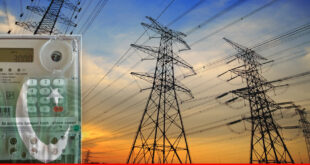Even a cursory look at the development of Singapore shows that the country has grown mainly by ‘living within available means’ or avoiding deficit financing. The country has also become hub of industrial and commercial activities because of very low taxes being collected from corporate entities and individuals. The added advantage is confidence in government policies, while Pakistan continues to suffer from budget deficit, trade deficit and on top of all trust deficit. The vision of policy planners can be gauged from the fact that Singapore does not produce a drop of crude oil but has the largest and most modern oil refineries. Singapore has one of the lowest tax rates that encourage people from other countries to choose it as preferred investment destination.
Historically, policy planners have been following lopsided policies aimed at increasing revenue collection, rather than promoting investment and creation of new productive facilities and employment opportunities. In the past focus remained on taxing import of capital goods, raw materials and POL products and present government of PML-N is not an exception. It has once again proposed a budget that heavily relies on deficit financing. The proposed federal Budget outlay is Rs4,302 billion, out of this Rs1,422 billion will be met through borrowing. The most disappointing fact is that FBR’s collection will be Rs,2,810 billion out of this Rs1,630 will be raised indirectly.
Another interesting observation is that non-tax revenue collection has been estimated at Rs816 billion. Out of this Rs270 billion will be Rs270 billion from SBP profit, Rs82 billion will mainly comprise of dividend income from companies like OGDC, PPL, Sui twins and PTCL and another Rs264 billion from other sources. If one subtracts corporate paid by the 12 entities contributing to the dividend income of the government, FBR’s performance will become further deplorable. This also opens up Pandora’s Box about much talked about subsidy being paid to energy sector. Payment of huge subsidy to WAPDA has always remained a big question mark and payment to K-Electric (KESC) also has to be talked about.
There is often a loud talk about cutting supply of electricity from national grid to K-Electric because it deprives other areas. While no one wants to talk about supply of free electricity to FATA since independence and K-Electric being solely dependent of fossil oil/gas it is often demanded that subsidy to Pakistan’s only integrated utility operating in the private sector should be curtailed. In fact this utility company supplies electricity to industrial areas, which have the largest share in payment of taxes and exports. Karachi is surviving on ‘self-generation’ because the estimated demand of the city is about 5,000MW and the utility can supply at the best 2,500MW. It is also necessary to bring it on record that K-Electric attracts a lot of criticism because it releases periodical accounts. As against this data about NTDC, distribution and generation companies are not made public to save these from criticism.
It may be right to say that hardly any effort is being made by the corrupt tax regime to catch ‘big fish’. NADRA has the data about rich people evading tax payment but FBR has hardly used the details. While the official data indicates that per capita income of Pakistan is around US$1,200, some of the analysts estimate per capita income of certain areas of Pakistan as high as US$10,000. While anyone can term this ‘diabolic thinking’ compiling some details can establish credibility of these numbers. As such analysts have the consensus that documented economy is only one-fourth of the economy of the country, other three-fourth is undocumented, which could be termed the mean reason for disparity in official and estimated per capita income of the country.
The numbers get some credence because all sorts of income being clubbed under ‘income from agriculture’, which has remained virtually tax free. Provincial governments have been given the mandate to collect tax on income from agriculture. The numbers about tax collected from income from agriculture clearly proves that the provincial governments have been failing completely in collecting tax from feudal lords, who enjoy access to power corridors and also have majority in Senate, National and Provincial Assemblies.
Some of the critics say that while the corrupt tax collection regime is thriving, state is being plunged deeper into debt, both local and external. If one simply takes into account payments being made through credit cards, hundreds and thousands of tax evaders could be identified and billions of rupees could be recovered as tax liability.
Many of the critics have been opposing ‘amnesty’ schemes on two grounds: 1) introduction of these schemes with regular intervals tantamount to penalizing tax payers and 2) it encourages people to evade tax. One of the points is often raised that why should people pay tax because bulk of it is spent on bureaucracy, elected members and corrupt tax collection regime? To a large extent people are right if one looks at the allocations being made for education and healthcare. Once a politician pointed out that the annual expenditure on the kitchen of President and Prime Minister Houses is more than the allocation made for education. This may be a little exaggeration to malign the holders of highest office but putting the record straight is a must for the rulers.
A few other proposals like taxing Bonus Shares, reduction of corporate by one percent and rising GST percentage clearly establish that those paying the tax are being further penalized. In fact the government should have suggested withdrawing all sorts of taxes on dividend income, bringing down GST rate and planning for catching the tax evaders. Let one point be kept in mind ‘higher the tax rate, higher is the evasion’. Look at Singapore model and try to replicate it in Pakistan.
 PAGE Blog Business Weekly Magazine
PAGE Blog Business Weekly Magazine

